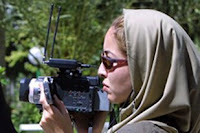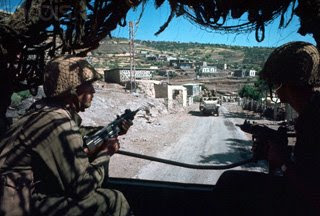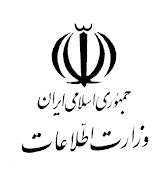
Ethiopian Review
News Forum
Posted by Mehret Tesfaye | September 3rd, 2009 at 2:24 pm |
A career in espionage is easily one of the most coveted of all childhood fantasies, due largely to the unending stream of spy movies, comics, books, and real-life stories we’re inundated with growing up. While James Bond is at the top of everyone’s list, in reality things can be a bit different; spies come in all shapes and sizes, and range from honorable to just plain criminal. Some are remembered for their daring and others for their half-witted desperation and lust for money, but one thing rides certain throughout the disparate stories they tell: It takes guts to be a spy. While the greatest spies will, by virtue of their success, never be known to us, these are the 15 most notable spies in our recent history. Regardless of their final motives or original intent, they’ve all earned their own version of immortality by contributing to our unending fascination with the shadowy world they’ve walked.
Mata Hari
Born Margaretha Geertruida Zelle, Mata Hari is one of the most widely known names in history. Beautiful, scandalous, sexy and shrewd, this exotic dancer and courtesan is believed to have worked her way into the fabric of World War I as a double agent. Technically kept out of the fray by her Dutch citizenship at the time, she travelled between countries freely, and it wasn’t until a cracked German code was intercepted that she was pinned by French authorities for espionage. Doubt’s surrounded the entire affair ever since, but Mata Hari was executed by firing squad on these suspicions, and blamed for the death of 50,000 troops. She’s rumored to have said of herself, shortly before the end, “Harlot, yes, but traitor- never.”
Nathan Hale
American folk hero and revolutionary war centerpiece Nathan Hale is widely regarded as the first American spy. He could be called the patron saint of the CIA, and a statue of his likeness watches over Langley, even today. He’s the man who said the oft-quoted line “I only regret that I have but one life to give my country,” which keeps him in the same story-book category of heroes as Ben Franklin and the rest of the cadre of world-changers from that epic era. Hale, then a Captain in the Continental Army, spent only about a week behind enemy lines during the Battle of Long Island, but in that time he cemented his place in history by earning the respect of even his executioners.
Sidney Reilly
Way back in the ancient times, before MI6 and the CIA, there was Scotland Yard. And from this old-timey British spy-hub, there was a man on a mission, and his name was Sidney Reilly. A Ukrainian born Jew, born Georgi Rosenblum, Reilly would come to be known as the Ace of Spies as he swaggered his way across Europe and Asia in the name of Crown and Country. His entire life was shrouded in mystery while simultaneously flaunted and recorded for posterity. He is the basis for Ian Fleming’s creation: James Bond. Amazing that today, we don’t come across this extraordinary man’s name unless we’ve got our noses buried in history books.
The Cambridge Five
You’ve undoubtedly heard the phrase (or an analog) “the fifth man.” There’s an origin for every phrase, and for this one there is a spy story. While only four of the original group were ever discovered and captured, the group was always known to be five members at its core, and the Cambridge Five made waves during the great red-scare at the end of the second World War and into the 1950’s by spying for the Soviets in the UK. The four known masters of this spy ring were Anthony Blunt, Donald Duart Maclean, Kim Philby and Guy Burgess, showed above from the left and clockwise. The group was well placed in Royal SIS circles and even had posts in the USA. They were ratted out to be part of a ring of five men by then-fellow KGB operative and defector Anatoliy Golitsyn in 1961.
Aldrich Ames
Another double agent, Ames worked counter-intelligence for the CIA – a post he used to give up the names and locations of every American operative in range of the KGB. He was grabbed in 1994, along with his wife, when the FBI finally called shenanigans on his outrageous spending habits. He had been living the life of a rich man on a $60,000 a year salary, while his wife had been racking up $6,000 phone bills every month. He may not have been the most intelligent spy when it came to covering his tracks in the public sphere, but he did manage to pass an extensive polygraph examination at the height of his scrutiny, twice. Today, Ames is serving life in a federal prison, while two million dollars sits in an undisclosed bank account waiting for his unlikely release. Over two million more has already been seized by the US government.
Christopher Boyce & Andrew Daulton Lee
More widely known as “the Falcon and the Snowman,” Boyce and Lee were an unlikely duo that formed out of convenience and managed to punch a serious hole in the USA’s national security through their lo-fi efforts on behalf of the Soviet Union back in the 1970’s. Boyce was working for an aerospace company on contract with the US government at the time, and was given top-secret clearance. When he began collecting the information he “accidentally” came by, he decided to make a move on it. He started trafficking the intelligence through his friend, Lee, a drug-runner, through Mexico to the Russian embassy there. It wasn’t until his friend was later arrested by the Mexican police on an unrelated charge that a microfiche was discovered, and their jig was up. Boyce was captured some years later, after a string of bank robberies used to fund his endeavors to become a pilot so he could fly to Russia.
Robert Hanssen
Among the same ranks as Aldrich Ames, Hanssen was an FBI Agent who spent two solid decades spying for the Soviets and Russians before he was caught in 2001 to massive media attention. In fact, one of the most key pieces of information Hanssen ever leaked was only acted upon by his Soviet employers when Ames provided confirmation, leading to the execution of a Russian General who had successfully spied for the Americans for 20 years. Hanssen made millions in his spy role, beginning just three years after his first post with the FBI, and continued on to be the most successful of his peers until his luck finally ran out. Hanssen was no idealist, he stated himself that he only did it “for the money.”
Julius and Ethel Rosenberg
Making history by becoming the first civilians to be executed for espionage in the United States, the Rosenbergs had been accused and found guilty of divulging secrets of the atomic bomb to the Soviets in the early 1950’s. They were both put to death by the Sing Sing electric chair at sundown on June 19th, 1953 in New York. Scientists deplored their deaths, but they weren’t the only ones. Among others, Pablo Picasso and the Pope also condemned their executions. At the time there was great debate in certain educated communities as to whether the United States should have had a complete monopoly over nuclear weapons, and the Rosenbergs were a sympathetic case. They certainly weren’t the only ones trafficking this information, either. That being said, they kept their lips sealed through to the end.
Klaus Fuchs
Working concurrently to the Rosenbergs to get atomic bomb data to the Soviets, Fuchs was convicted in 1950 and sentenced to fourteen years imprisonment. They do things a bit differently in British courts, apparently. His confessions implicated a man who would just three years later become the chief witness against the Julius and Ethel Rosenberg. He is largely credited with playing the largest role of all spies in the USSR’s successful acquisition of nuclear bomb technology – at break-neck speed – something that had until that point baffled the American scientific and intelligence communities.
John André
Major John André was captured on a mission for British Secret Intelligence, in which he was attempting to purchase the surrender of West Point from American General Benedict Arnold. He’s been called the British Nathan Hale, and was compared to the American while in captivity. He was found to be so likable in this way that the American guards themselves befriended him.
Belle Boyd
She’s been called the “Cleopatra of the Secession,” and she gave information to Confederate General Stonewall Jackson during the war. Belle was turned against the Union army when a group of soldiers assaulted her mother and she was forced to fire upon and kill one in her defense. Since that moment, though she was later exonerated in court, she did not ever seem to get over the ordeal, and began eliciting information from the army officers using her feminine whiles. She would then ferry the information using slaves, as she was in Virginia at the time. Unlike most members of this list, Belle would die of natural causes in her old age while staying in Wisconsin.
Oleg Penkovsky
Known as “Agent Hero,” Oleg is credited with being responsible for the Cuban Missile Crisis. Oleg had been a Colonel in the Soviet GRU, and was supplying the Americans with information throughout the 1950’s and 1960’s. It was his information that allowed the analysts to find the silos and missile cargo in the low-resolution spy-plane photos. In 1963, he was tried and convicted of treason and espionage in Soviet courts, leading to his execution, though there is no known record of how this execution took place, but the old Russian way is a simple bullet to the back of the neck.
George Koval
Though he was born American, Koval was moved as a child and eventually resettled in Russia for an extended period. While there he was recruited and later sent back to the United States to acquire nuclear information, which he succeeded in doing. He went to school and secured a position as an engineer on the Manhattan Project, allowing him free access to boundless intelligence that he would report back to his Soviet overseers. After Koval’s death in 2006, (then) Russian President Vladimir Putin posthumously decorated him as a Hero of the Russian Federation.
Jonathan Pollard
Texan-born Pollard was sentenced to life in prison for espionage as a spy for Israel in 1987. He had been working as an intelligence analyst for the US Government. He worked for cash, diamonds, and heritage, and was even vouched for by Benjamin Netenyahu himself in an attempt to gain clemency or pardon after his capture. He was only discovered when a fellow employee had noticed him removing classified material from the work center.
Richard Sorge
A Soviet spy of the highest order, Richard Sorge is famed for his exploits during the second World War in both Germany and Japan. He was highly successful, but was ultimately captured by the Japanese and imprisoned there. In 1944, Sorge was executed by hanging in the prison he had spent the last three years of his life. During the Cold War, he and his likeness were ubiquitous icons of Soviet pride and nationalism due to his service and dedication throughout his career.


































